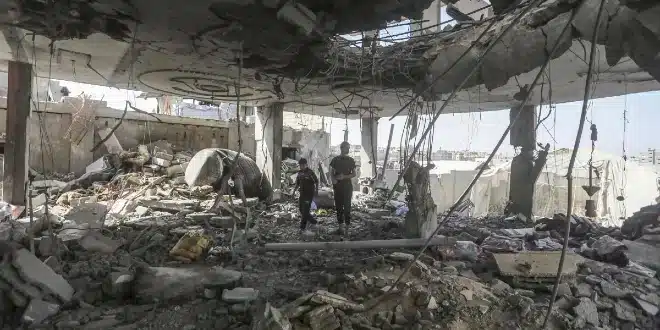This week, U.S. officials were informed by Israel about their plan to potentially evacuate Palestinian civilians before an operation in Rafah, a city in southern Gaza. The Israeli proposal, aimed at targeting Hamas militants, was shared amidst concerns from the Biden administration that such an operation would endanger many innocent lives and escalate the humanitarian crisis.
U.S. Secretary of State Antony Blinken, speaking at the Sedona Forum in Arizona, emphasized that without a credible plan to protect civilians, the U.S. could not support an Israeli military move into Rafah. He highlighted the significant risk of damage and loss of life.
Rafah has become a refuge for about 1.5 million Palestinians during the ongoing conflict that began on October 7, when Hamas attacked Israel, killing 1,200 and capturing around 250 hostages.
The United Nations has warned that an Israeli assault on Rafah could put hundreds of thousands of lives at risk, noting the city’s critical role in the entry of humanitarian aid and its dense population of displaced Palestinians.
The Israeli evacuation plan discussed with U.S. officials is still under review, with both nations agreeing to continue discussions. White House press secretary Karine Jean-Pierre confirmed that discussions about the operation are ongoing, emphasizing the importance of safeguarding Palestinian civilians.
During CIA director William Burns’ visit to Egypt, where cease-fire negotiations are ongoing, the possibility of a truce and a hostage-prisoner exchange was discussed. Hamas is currently reviewing a cease-fire proposal by U.S., Egyptian, and Qatari mediators, and is expected to send a delegation to Cairo soon for further talks.
Israeli Prime Minister Benjamin Netanyahu has stated that Israeli forces would proceed with the Rafah operation, irrespective of any truce agreements, a stance seen as catering to his nationalist coalition partners.
In summary, as tensions and diplomatic efforts continue, the international community remains focused on finding a resolution that ensures the safety of civilians and leads to a sustainable peace in the region.


